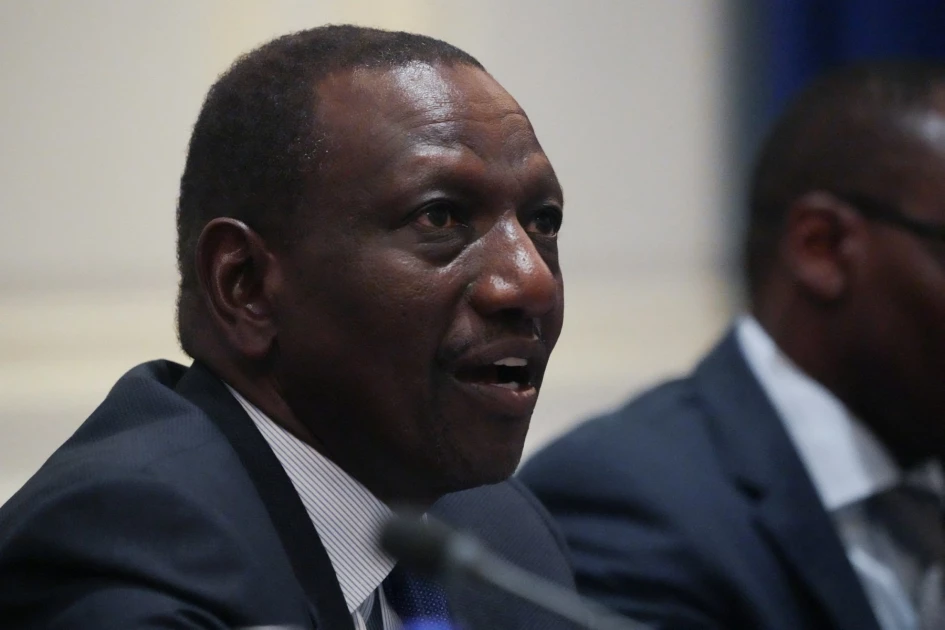‘Didn’t you have a checklist?’ Ruto faulted over Haiti mission planning after logistical grievance

FILE - President William Ruto. (Photo by AFP)

Audio By Vocalize
Foreign policy expert Ahmed Hashi has criticised President
William Ruto’s handling of the Kenya-led Multinational Security Support Mission
(MSS) in Haiti, saying the logistical challenges the head of state decried this
week point to poor preparation.
During a Monday event on the side-lines of the United
Nations General Assembly in New York, Ruto said the underfunded mission has
been operating at only 40 percent capacity due to a lack of promised personnel,
equipment, and logistical support.
Hashi, speaking on Spice FM on Wednesday, questioned why
Kenya deployed troops without first securing the necessary resources and
training to operate effectively.
“President Ruto was saying that they got second-hand cars in
Haiti. They didn't get the support that they needed. They need the logistics…
didn't President Ruto and his foreign minister have a checklist of what they
needed when they were going to Haiti?” he asked.
Hashi argued that any international mission requires basic
planning, including training on specialised equipment and ensuring sufficient
air cover.
“When we bring our troops in, we want training for at least
90 days or 60 days for us to use that equipment. The Kenyan contingent didn’t
have any air cover,” he said, adding that gangs in the Haiti capital, Port-au-Prince,
still posed a formidable threat.
He warned that Kenya risks undermining its credibility by
repeatedly appealing to Western powers for logistical support instead of
building its own capacity.
“You can’t keep going to the Americans or the Europeans and
say, we’re building world peace, but are not being provided with the
infrastructure for our soldiers. We need to strengthen our own internal
mechanisms for doing these things, and in that way have the capacity to come to
the table and say, This is what I’m going to contribute to the U.N., and
therefore I have the right to a seat,” Hashi said.
The analyst also questioned Kenya’s broader approach to
multilateral diplomacy, noting that moral arguments for inclusivity at the
United Nations must be backed by tangible contributions.
“You can’t argue the moral position for inclusivity and say,
I want to be part of this thing, without also coming in with bread-and-butter
issues that you are going to contribute,” he said.
Kenya leads the mission with 735 out of a total
989 officers, supported by contingents from Guatemala, El Salvador,
Jamaica, The Bahamas, and Canada.
In his Monday speech, President Ruto said the mission
deployed in June 2024 after endorsement by the U.N. Security Council has been
operating at only 40 percent capacity.
“Initially, it was expected that 2,500 security personnel
would be made available. Unfortunately, they were not,” he told delegates.
“It was also expected that there would have been force
multipliers, that we would have armoured personnel carriers, and we would have
enough logistical support to make this mission successful.”
But while Ruto commended the United States for providing
logistical vehicles, he said most were second-hand and prone to breakdowns,
exposing Kenyan officers to danger in hostile areas.
"Most of the vehicles were second-hand vehicles, and
therefore, they broke down a lot many times. And in fact, it put our personnel
in great danger when they broke down in very dangerous places," he
said. “At least they stepped up. We didn’t, however, get any useful
support from any other quarter.”
Ruto stressed that Haiti’s crisis required consistent
international backing, saying, “I believe that the situation in Haiti can be
solved; it is not Mission Impossible. What is going on in Haiti is
unacceptable, indefensible, simply wrong.”
At least three Kenyan officers have been killed in Haiti to
date. With the MSS mandate set to expire on October 2, the U.S. and Haiti on
Monday called for transforming the mission into a larger force.
Ruto has called for clarity in planning a successor mission
and urged the international community to urgently step up support to stabilise
the Caribbean nation.
He has outlined three priorities: a clear mandate, a
predictable resource package, and reliable logistical support, warning that
without correcting past mistakes, future efforts risk failure.



Leave a Comment